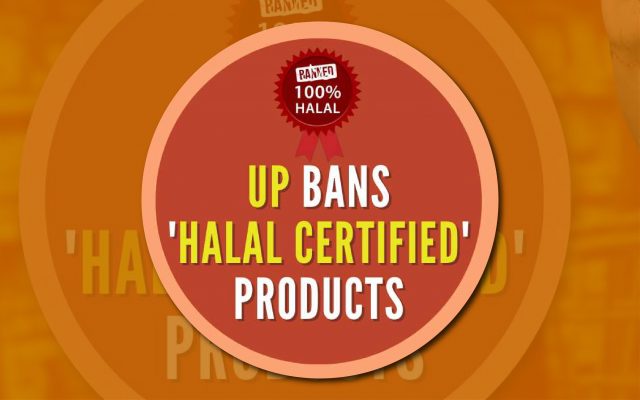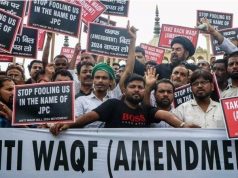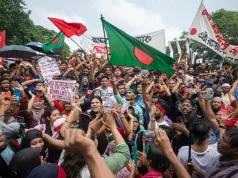The Uttar Pradesh government recently prohibited the sale of any “Halal” certified product in the
state. All food goods with the halal label are now prohibited to manufactured, stored, or distributed.
The judgment followed a long-running controversy and discussion about halal items and their
manufacture. According to the Quran, the literal definition of the term “Halal” is “permissible,” as
opposed to the phrase “Haram,” which means “forbidden.”1 The term halal is usually associated
with meat that has been slaughtered in a specific manner that Muslims can consume in
compliance with Sharia law. “Strict legal action will be taken against any person or business
involved in the production, storage, or distribution of halal items” an official order stated.2
The ban on halal items and their distribution applies exclusively to products sold and consumed in the state; nonetheless, there is skepticism here that there is no ban on the export of halal certified
food.3 This explicitly means that the government can extract monetary benefits from the
halal products but not allow the Muslims of the state to consume the same. The restriction might
have been implemented to attain standard uniformity; however, it is crucial to remember that
restriction is also a direct violation of the fundamental right of the 19% Muslim population, which amounts to nearly 3 crore people. The ban on halal items denies Muslims the right to obtain things
that are fundamental to their faith. The Quran expressly specifies that a Muslim can only consume
halal food and that the right to profess and exercise one’s beliefs is the fundamental right of every
Indian Muslim according to the Indian Constitution Article 25.4 The ban does not just apply to food,
but also, to medicine and cosmetics, which goes against basic human morals.
The Uttar Pradesh government’s discrimination against the state’s Muslim community is nothing
new but an ever-growing phenomenon; Previously, it was changing the names of sites in the state
with the objective to completely eradicate Muslim identity from history and make it conform to the
ruling party BJP’s perception of India. Critics contend that removing Islamic names marginalizes India’s Muslims and denies them a place in the country’s history.5 Yogi Adityanath has made it clear that the government will continue to rename places in the state; for example, Mugals Sarai was called “Pandit Deen Dayal Upadhyay Nagar.”6
The feeling of being treated differently exacerbates existing social and political tensions in the
state. The government authorizing the export of halal-certified products is blatant duplicity on their part since they aim to satisfy foreign consumers while alienating their own. According to government contentions, a small number of companies exploit the certification tag to advertise specific products. This can be readily rectified by creating a state authority that awards the halal tag and permits appropriate labeling to be done on the products, which can then be consumed by those who enjoy them and left by those who do not.
References
1. Quran, 2:172-173
2. Chowdhury, S. (2023, November 19). UP Bans Sale Of Halal-Certified Products With Immediate Effect. NDTV.
Retrieved November 23, 2023, from https://www.ndtv.com/india-news/up-bans-sale-of-halal-certified-productswith-immediate-effect-4585665
3. Why Yogi-led UP government has banned Halal-certified food products. (2023, November 20). The Economic
Times. https://economictimes.indiatimes.com/news/how-to/why-yogi-led-up-government-has-banned-halalcertified-
food-products/articleshow/105348724.cms
4. Article 25 in The Constitution Of India 1949. (n.d.). Indian Kanoon. Retrieved November 23, 2023, from
https://indiankanoon.org/doc/631708/
5. Biswas, S. (2018, November 13). Is India waging a ‘war’ on Islamic names? BBC.
https://www.bbc.com/news/world-asia-india-46191239
6. Pandey, A., & Menon, A. (2018, November 11). Yogi Adityanath Justifies Renaming Faizabad Allahabad And
Mughal Sarai. NDTV.
https://www.ndtv.com/india-news/yogi-adityanath-justifies-renaming-faizabad-allahabad-andmughal-sarai-1945456






